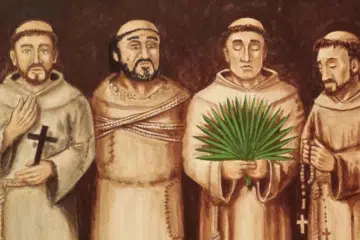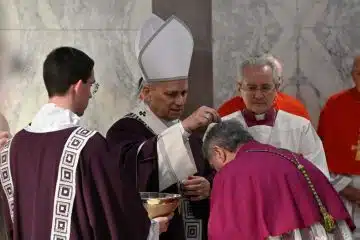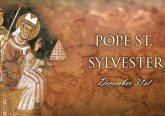April 22: Sts. Caius and Soter
Cauis and Soter, Popes of the early Church, are both venerated in tradition as martyrs, though no reliable account of their martyrdom survives today.
St. Soter was born in Fundi, in Italy. The date of his birth is unknown but we know that he was Pope for eight years from 166 until his death in 174.
Soter´s papacy was an example of what seems to have been the remarkable tradition of generosity exercised by the bishop of Rome. This tradition and Soter´s personal charity and paternal love for his universal flock can be evidenced from a letter to Pope Soter by Bishop St. Dionysus of Corinth, quoted in the 4th century “Ecclesiastical History of Eusebius”:
“This has been your custom from the beginning, to do good in manifold ways to all Christians, and to send contributions to the many churches in every city, in some places relieving the poverty of the needy and ministering to the Christians in the mines, by the contribution which you have sent from the beginning, preserving the ancestral custom of the Romans, true Romans as you are. Your blessed bishop Soter has not only carried on the habit but has even increased it, by administering the bounty distributed to the saints and by exhorting with his blessed words the brethren who come to Rome, as a loving father would his children.” (IV, xxiii, 9- 15)
In the same letter of Dionysus we learn that Pope Soter had written a letter to the Corinthians which was read in the Church alongside the epistle of St. Clement and was held in high esteem.
Though his kindness extended to all persons, he was a fierce opponent of heresy, having been said to have written an encyclical against Montanism – the teachings of a heretical sect which believed that a Christian who had sinned gravely could never be redeemed.
Pope St. Caius reigned for 13 years from 283 until his death in 296 just before the Diocletian persecution. He was a relative of the Emperor Diocletian – instigator of one of the last great persecution of Christians in the early years of the Church. Early in his papacy Caius decreed that a man must be a priest before he could be ordained a bishop.
He is said to have been driven into hiding in the catacombs for eight years whence he died a confessor, however the source from which this information is gleaned is considered unreliable by most historians.
Both St. Soter and St. Caius are buried in the cemetery of St. Calixtus and are venerated on the date of the death of Pope St. Caius.













